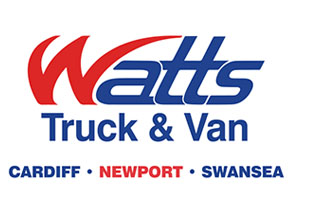In October 2018 the Intergovernmental Panel on Climate Change (IPCC) issued a stark warning:
We have just 12 years to mitigate the risk of catastrophic climate change and reverse the destruction of natural habitats.
We must make the most out of precious resources, waste as little as possible and find ways of turning the waste we do create into new wealth.
The following month, in November 2018, Business in the Community, of which Watts Truck & Van is a member held their first Waste to Wealth summit. Over 200 leaders from business, government, academia and civil society came together to tackle the challenge, putting forward proposals that will help increase resource productivity and reduce avoidable waste.
Watts Truck & Van is one of an increasing number of businesses in Wales who have made the commitment to:
- Set targets to improve the productivity of resources that are key to the business
- Work collectively to double the nation’s resource productivity and eliminate avoidable waste by 2030, contributing in a way that is most relevant to the business
- Redesign how resources are used in products, services and operations
- Collaborate across the organisations, value chains and sectors
- Reconvene and report on progress annually to share learning and demonstrate results
Even though Watts Truck & Van were already environmentally aware and doing things you would expect of a responsible business such as recycling, as part of this commitment the senior management team have looked further at the processes and systems across all their sites, reviewing existing practices and identifying where changes can be made.
Some of these changes are not unexpected and are normally the first on the list to review when looking at energy usage; changing to more energy efficient lighting and using timers and motion sensors to control lighting, being a prime example. Checking and changing heating systems to ensure more efficiency and less waste is another. Obviously, reviewing storage systems and rolling out best practice across all sites is a key area where streamlined processes and reduced waste can be achieved. Reducing paper usage is another common easy way of reducing waste.
However, when it comes to fuel efficiencies, as well as reviewing company car policies and ensuring their delivery vehicles are as fuel efficient as possible, there are more innovative things being used by Watts Truck & Van to improve their efficiency.
- Site layouts have been reviewed to minimise vehicle movements
- Use of software to give an overview of vehicle telematics data allowing a summary of vehicle fuel efficiencies and identifying where improvements can be made
In addition, the continuation of innovative developments of DAF vehicles help Watts Truck & Van meet their commitments
- A surcharge on certain DAF parts means that users are encouraged to return the unit being replaced for overhaul and return to the market, thus extending their life.
- A DAF voucher system has been introduced for new vehicles which is redeemable against driver training to ensure they get the maximum fuel efficiencies from their new vehicles
- Information systems in the latest DAF vehicles provide drivers with instant data on performance to enable better fuel consumption
With the introduction of DAF electric trucks, Watts have introduced additional technician training to ensure staff are fully up to speed and able to support the maintenance and repair of these new electric vehicles.
Watts Truck & Van is committed to the Waste to Wealth initiative and as such, the Environment and ISO14001.2015 are standard agenda items at management meetings. In addition, there is an annual review to ensure that the company’s Environmental Management System remains suitable, adequate and effective.
Some changes may be small, but they can make a huge difference in waste management and recycling. Others, like introducing new electronic systems may take longer to implement. However, if all businesses try and begin to make changes there can be change and an impact on the current climate change issues.
Did you know?
- The UK produces more than 200m tonnes of waste each year
- 28m tonnes comes from commercial and industrial waste
- 27m tonnes comes from household waste
- UK businesses could save £7.2bn by improving the productivity of energy resources
- Reducing waste an save an organisation up to £1000 per year per employee
Click here for more information on the Waste to Wealth initiative
Business in the Community is the oldest and largest business-led membership organisation dedicated to responsible business. It was created nearly 40 years ago by HRH The Prince of Wales to champion responsible business.
It inspires, engages and challenges members and mobilises that collective strength as a force for good in society to
- Create a skilled, inclusive workforce today and for the future
- Build thriving communities in which to live and work
- Innovate to repair and sustain our planet





